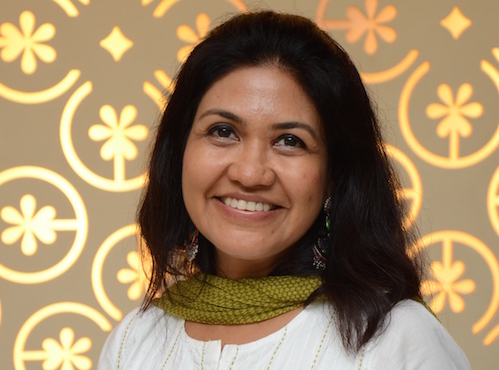Over the last several years, capital in our country has become a lot more free-flowing, and we have witnessed a significant inflow of funds from foreign investors in our debt and equity markets. Inflows from Foreign Institutional Investors (FIIs) in June were the highest ever in 2020 and drove the Indian stock markets up by eight percent. In addition, many of our top funds, whether focused on private, public, or the alternatives markets, have had large global institutions as investors. These investors have brought with them an increasing emphasis on ESG (Environment, Social, and Governance) performance.
ESG funds are driving Indian companies to showcase CSR efforts
We are seeing the emergence of an increasing number of ESG funds focusing on investing exclusively in companies with well articulated and demonstrated ESG goals and outcomes. The top 100 companies in India are responding to this demand and are beginning to build an appropriate response to account for it. As a starting point, they have been showcasing the ‘S’ in ESG by presenting their contributions to, and their work in, Corporate Social Responsibility (CSR). ESG, in a sense, is an added bonus, as Indian companies look for bigger and more reputed global sources of financing.
Related article: CSR is unlikely to fund new grantees this year
With the introduction of the CSR Act in 2014, what was ‘good to do’ for corporate India has become a ‘must do’. Companies have responded in different ways: Some decided that they could become more strategic, more meaningful, and put in more effort in defining and strengthening their approach to CSR. Some decided to do the bare minimum and adhere to the letter of the law. And many in the middle, repurposed their human resources and marketing teams to also do CSR.
What was common to all, however, was that most could not bring in a long-term approach to funding, as CSR allocations are almost entirely dependent on the company’s profit numbers for the previous three years. Very few companies will look to invest beyond a year, because their investors and boards will question them. So, the year-on-year mindset is not going to change, and we are seeing the significance of these annual allocations during the COVID-19 crisis.
Corporate India is reeling from COVID-19 too
Just like the development sector, the world of business has also gone into survival mode. Industry after industry, barring a handful, has been tremendously impacted. No one is thinking about profitability or what financial year 2021 will look like. The focus is now on financial year 2022 and figuring out ways to revive growth. When a corporate is in survival mode, their first instinct is to ask, “what do we need to do to survive?”
The PM CARES Fund emerged as an avenue for corporates to contribute to government efforts. When these contributions were made eligible for CSR, it helped companies meet their mandatory CSR goals as well. Having got that out of the way, the focus shifted very quickly to getting their businesses up and running. The chambers of commerce did tremendous work with the government, advocating for opening up of the economy, asking for all kinds of relief, including for some compliances such as filing of various returns, a moratorium on interest, principal repayments, and so on.
There is a definite fear that many companies will cease to exist in the future because of a significant decline in income, even as cost levels remain more or less the same. Many say that they never imagined a world where revenues would be 10 percent of normal rates. As a result, there will be companies that will be sold, restructured, or even shut down. So, just like nonprofits are struggling for survival, many corporates are too. However, with most nonprofits, even though they know that funding has become scarce, the realisation that this could be a question of survival hasn’t yet sunk in.
We, as donors, have had to have several conversations with nonprofit leaders to say that this is not a year to be ambitious or start new programmes. This is just a year to protect what you have, and there will be a cost to it. You may not be able to see progress, in fact, you might actually slip further back, especially in areas such as education, women’s rights, and violence. We don’t know how much regression is going to happen, but this is not the time to worry about that. As our former Reserve Bank of India (RBI) governor Raghuram Rajan put it, it is the time for relief, repair, and reform.

It will require different stakeholders coming together, asking a lot of questions, testing various approaches, and taking small steps. | Picture courtesy: Pixabay
Nonprofits aren’t having honest conversations with their donors
When we talk to nonprofits to understand their situation, I get a feeling that they aren’t telling any of their donors what’s really happening with them. One reason is the fear that if they don’t tell their donors what they want to hear, they will stop receiving funds.
Nonprofits fear that if they don’t tell their donors what they want to hear, they will stop receiving funds.
For instance, nonprofits that work extensively in physical school settings think that if they tell their donor that they won’t be able to work in schools this year, their funds will be withdrawn and the whole programme will have to be shut down. And so, they are choosing to not engage with their donors.
In their attempt to retain their current donors, nonprofits aren’t thinking about how to pivot and adjust to the new reality. They aren’t considering the fact that they might have to change their strategy and ‘business model’, that too permanently.
Will donors be supportive?
It’s worth understanding if donors—CSR, foundations, or individual philanthropists—would allow their grantees to pivot. If they have funded a nonprofit for a particular programme, will they allow them to use the money for immediate relief, or to rehaul the programme in the medium-term, given the new reality?
We know of a funder who told their nonprofit partner, “if you are going to use money from my education programme to give rations to the children because they’re not getting midday meals, we don’t want to support you going forward. We would rather find a more viable way of funding somebody who is already doing ration-related work.”
Related article: Is PM-CARES diverting money away from nonprofits?
Most funders, however, like to believe that they are being ‘flexible’
It’s interesting to note what funders mean when they say they are ‘flexible’. Usually, it’s one of three things: First, we are okay if your quarterly or annual programme reports don’t come exactly on time this year, but the expectation remains that the nonprofit will continue to carry out their M&E process during this period.
Second, we will give you some leeway to play around with expense heads. So, if the nonprofit has to spend more on salaries as opposed to training—because training is going to be massively hit in a lockdown scenario—they are willing to let that pass.
The third, and best case, is where donors actually ask their partners what they need, and hardly anyone is doing this. Nobody is saying, let me sit with you and figure out what it will take to survive. This means, as a funder, you are also redefining the nonprofit’s operations and impact to yourself, not just this year, but in the long-term as well, and those are the kind of investments you must be willing to make.
This third scenario though, is largely absent. We need more nonprofits—especially the larger ones, who have more clout and credibility—to step up, talk about it, and ask for it if their funders don’t step up. Can they stand up and say, “this is our existential crisis year, and we have to really reimagine how we are going to run our organisation, especially given the funding shortage, which is likely to extend for at least 12-24 months.”
The problem is that the focus over the few months has been about just the money
Very few people have spoken about what is happening on the ground. All conversation has been about how much money an organisation has raised. The glory and the reputation of foundations and nonprofits have increasingly started revolving around this aspect. But little effort has been made to understand which models are working, what the approaches that have been most impactful are, how resilience and sustainability can be built, and so on.
We know that going forward, even corporates will be struggling with redefining the future; how does one expect nonprofits with limited resources and no ecosystem players to deal with this on their own? In the commercial world, there are consulting firms who are putting together what the future of work is likely to look like and what corporates can do to manage their businesses and costs in times of crisis. There is no one doing that for the development sector. Nonprofits need this even more, and given that we have always been a resource-constrained sector, there is no in-house capability to be able to think and do this.
It’s not just a funding risk
We are in an uncertain world and unlike risk—whether its financial, liquidity, or reputation—you cannot model for uncertainty. If it’s a funding risk, you can simply contract your organisation—let go of a few people, defer some programmes. Nonprofits know how to do this because they build their programmes year after year based on how much money is available. But what happens when you don’t know when funding is going to become available? How do you model that? That is the big challenge today.
Even the large nonprofits don’t have clarity on what their next year’s budget is likely to look like, especially if the bulk of their funding is coming from CSR.
Most nonprofits are okay till December; they have cash and funding visibility for 9-12 months. However, beyond that, there is uncertainty. Even the large, more established nonprofits don’t have clarity on what their next year’s budget is likely to look like, especially if the bulk of their funding is coming from CSR.
In some cases, the entire model is unviable. For instance, organisations whose core work entails physical interaction, such as centre-based training and skilling programmes or peer educators. In such cases, it is no longer about CSR letting them down; the nonprofits need to rehaul their entire business models.
Related article: How to ensure financial sustainability during COVID-19
We need to help nonprofits come through this on the other side
We have to work with each of our grantee partners one-on-one. We have to also stop saying, “this is a budgeting issue.” This is not a budgeting issue. Of course, we have to re-budget, but that’s a very tactical, short-term approach; it’s limited to just thinking about how do we hunker down, how do we contract the organisation, and how do we protect the jobs and interests of our field teams, as much as we can.
We have to think and act beyond that. We will have to reimagine the programme and the organisation, for which the board and funders need to be involved. We will need to work together, go through several iterations to say, what is it that we need to do over the next 24-36 months? It will require different stakeholders coming together, asking a lot of questions, testing various approaches, and taking small steps.
—
Know more
- Read this article to understand how nonprofits can pivot effectively while dealing with the COVID-19 crisis.
- Learn more about the role of philanthropy in anticipating and addressing the challenges of the current crisis.
- Understand how the pandemic has been a transformative moment for philanthropy.



